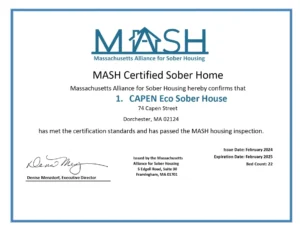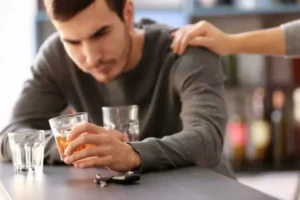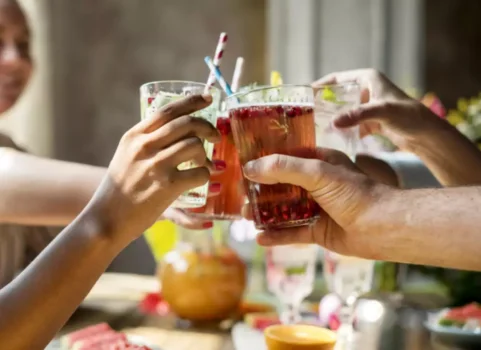In my work with the steps, I made a list of the people I wronged during my drinking career. And most of the people that I’ve talked to, to get some closure and maybe forgiveness, forgave me. I was romantic relationships in recovery living with a woman for seven years, and although we are now parted, we still have a good relationship. A lasting consequence of my old life is that I don’t have any contact with my children.
THE ROLE OF THE FAMILY IN RECOVERY FROM AUD
The process of recovery requires learning how to accept and go through the pain that life brings you. Part of this process is accepting that repairing the damage your addiction has done to your relationships will only happen gradually over time—based on what you do rather than what you say. The saying “actions speak louder than words” is especially accurate related to recovery. Many people with addiction histories also have difficulty with distress tolerance and coping skills—for many https://ecosoberhouse.com/ people substance use became a primary coping strategy, and it can be difficult to learn ways to cope with distress without using alcohol or drugs. Adding the stress of focusing on relationships could feel overwhelming, but it also provides an important opportunity to practice distress tolerance, emotion regulation, and coping skills. Relationships also benefit from healthy communication skills, validation, boundaries, and honesty—all of which are important for addiction recovery.
Life after sobriety
Experience-dependent recovery is by no means unique to alcoholism research. Inducing recovery from brain damage by manipulating environmental variables has been seen before in both animal and human research (see Rose and Johnson 1992). Evidence exists now that such recovery is not only a consequence of the subject’s adjusting behavior to learn a new method of performing a task. Indeed, studies using a variety of designs to examine the effects of environmental changes on neurological functioning have found performance enhancement coupled with actual changes in the nervous system (for further information, see Rose and Johnson 1992).
Signs You’re Dating an Alcoholic
By Buddy TBuddy T is a writer and founding member of the Online Al-Anon Outreach Committee with decades of experience writing about alcoholism. Because he is a member of a support group that stresses the importance of anonymity at the public level, he does not use his photograph or his real name on this website. The Twelve Steps themselves are the essence of Alcoholics Anonymous. They are the directions meant to provide members a path to lasting sobriety and a substance-free lifestyle.
- It concludes by reviewing research on ways to improve treatment outcome by facilitating cognitive recovery.
- Our emotional and physical intimacy is at the core of an engaged life whether we are cycling in France, promoting Love Without Martinis, spending time with Bill’s daughter, or teaching as adjunct professors in Thailand.
- Recovery seems to be accelerated if newly abstinent subjects are asked to “use their heads” at a level that is equal to, or slightly beyond, their current level of functioning.
- All of the participants in our study had received some form of treatment, but they found social relationships outside of treatment just as helpful in their successful recovery from SUD.
How Addiction Impacts Relationships
Individuals in 12-Step programs can cultivate new relationships full of hope and positivity. 12-step groups, offered in inpatient and outpatient rehab facilities, build community for individuals getting treatment for substance use disorders. These groups can be safe spaces to bond with a like-minded peer group. Some facilities have aftercare programs, which provide social activities for patients in facilities. An even more critical change was that the alcoholic patients’ ability to learn and implement a treatment component became a criterion for judging whether the alcoholic had successfully benefited from the cognitive rehabilitation program. In their study, Roehrich and Goldman (1993) used relapse prevention training as the treatment component.
- Twelve-step programs and other mutual-aid resources help serve this vital purpose.
- Every day might be different, depending on how controlled their drinking is or how alcohol or withdrawal is making them feel.
- However, attempting quick fixes is rarely helpful and almost never works well.
- We publish material that is researched, cited, edited and reviewed by licensed medical professionals.
- Future research directed at examining facilitators and barriers—at the patient, provider, and system levels—to inviting family members into AUD treatment under this model is necessary.
Don’t Accept Unacceptable Behavior
- The capacity to deal with new situations that demand the processing of multiple sources of information underlies humans’ ability to adapt to changing circumstances.
- See a certified medical or mental health professional for diagnosis.
- I admit I have very little respect for ways of treatment other than the Minnesota model.
- Spouses of people with AUD also experience higher rates of depression and anxiety, increased risk of domestic violence, and less relationship satisfaction than spouses of people without an alcohol disorder, a 2013 study found.
- With all the concerns that need to be considered, is it wise to start a relationship while in recovery?
- One study suggests that people with alcohol addiction have trouble expressing emotions3 months after they’ve quit drinking.
Understand Alcohol Use Disorder
Narrative 2: becoming responsible through limit-setting practices
- Codependency can continue to affect marriages even after your partner has become sober.
- They are an affordable, available, and convenient resource while people are recovering from substance use, but their emphasis on admitting powerlessness and leaning on a higher power can be a problem for some individuals.
- He has joined me on most of my journey, and the camaraderie with him has been important.
- That makes the process of relationship recovery pretty abstract for people who aren’t engaged with couple or family therapy.






